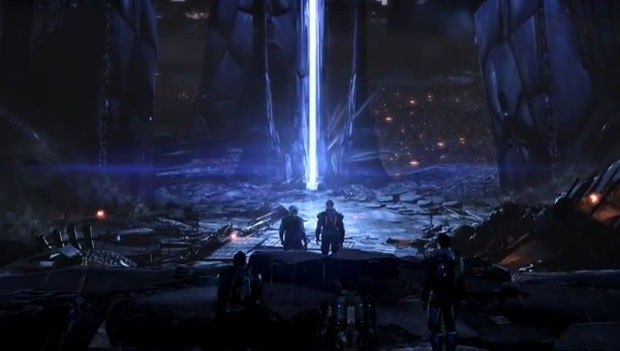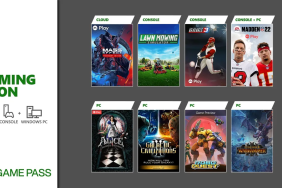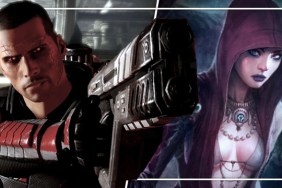Totally worth the Spoiler Alert!
My favorite troll: What's the difference between Mass Effect 3 and a rainbow? A rainbow has more than 3 colors and makes sense.
In the last decade, there has not been a video game ending that has received as much vitriol as Mass Effect 3's. Disappointed fans criticize the ending for its numerous plot holes and lack of cinematic differences between endings, while defenders claim that the open-ended epilogue is perfectly acceptable and that endings for any piece of art shouldn't be changed. Even Game Revolution was embroiled in the debate, usually with me on the renegade side and Keri Honea on the paragon side. (The only thing both of us agreed on was Garrus.)
BioWare effectively toned down the bickering by announcing the Extended Cut DLC, which mainly provides additional information and cut-scenes for clarity, while at the same time allowing those who don't want anything changed the option of simply not downloading it. On top of that, the Extended Cut is absolutely free, so worse case scenario, you'll end up hating this only as much as you hated the original ending; otherwise, your opinion will be improved by some degree, and that's what Bioware hopes to achieve with this pro-bono investment… before selling you all their upcoming DLC.
Chronologically, the Extended Cut first fixes some of the events leading into Shepard's ascension through the white beam to the Citadel. Shepard's last-ditch charge is not as straightforward as it was before, with a scene that shows your chosen team of two (hopefully including love interest) being struck by a vehicle and needing evac. The Normandy is on call to rescue your teammates, essentially showing that Joker does manage to get your entire team on board before the Citadel blast. It's not the best patch-up, but it's a tolerable answer. Adding a touch of emotion, Shepard also shares a few final words with said love interest before dashing toward the beam. BioWare could have awarded some paragon/renegade points here, but this is an extremely minor quibble.
From there, nothing really changes until Shepard reaches the Child, where many lines of dialogue have been added to bring more clarity into what each ending choice would entail as well as some short details on the creation of the Child and The Crucible. As a self-sentient construct, the Child contains the collective intelligence of all the Reapers and was created in part to organize and formulate a possible solution between what it claims to be the inevitable war between organics and synthetics. A peaceful solution, however, was not attainable, and thus the only next best alternative was to turn the Child's creators into the first Reapers and create the cycle of harvesting advanced organic civilizations until Shepard becomes the first organic to reach this pivotal point.
While the Child doesn't fully explain the origins of The Crucible and its creators due to time constraints, it is implied that its construction had been gradually improved upon over the course of multiple cycles until its full realization in Shepard's cycle. Though fuller details could have been given, it's not necessary to the main point of the ending.
However, I still would like to see an extra dialogue option with the Child if you managed to patch the Quarian/Geth conflict, showing that organics and synthetics can establish peace, as hard-fought as it was. That said, the Child would likely argue that it is a temporary truce or that it is but one fleeting example, or perhaps the Child would simply say that this is yet another way of how Shepard "changed the variables", thereby allowing the creation of different outcomes to be born.
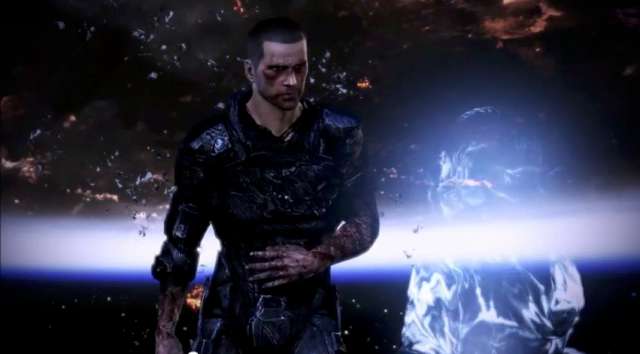
Given the extra option, the Child can now go into further detail about each ending, though let's first discuss the changes to the ending that affect the three original options; that is, not the extra Refusal ending (to be discussed later). After Shepard makes the Destroy, Control, or Synthesis option, a scene clearly shows Admiral Hackett telling Joker to get out of the Crucible's blast. Some people have complained that the reason for doing so in unclear, but it seems more than plausible that a radial blast of some powerful, unknown energy wouldn't be pleasant to an airship. Unlike the soldiers still fighting on Earth, the airships have a means of escape, so why not take it?
The blast still radiates via the mass relays, though they don't explode now, causing mass transportation issues, mass starvation, and massive plot holes. Instead, they're just "badly damaged" and the Child notes that the mass relays can eventually be repaired. Two words hardly feels like an appropriate bandaid, but the fix could just be that deceptively simple.
After seeing some extra snippets of the battlefield on Earth, the standard scene of the Normandy crashing into some paradise on the planet is shown, and once it ends, a new motion comic reveals some extra information on the result of Shepard's decision. Although they could have chosen something better than a motion comic, its purpose of bringing more resolution and differentiating the three endings from each other is realized, by showing what happens to some team members and the various Citadel races.
This includes another extra cut-scene where your crew stands before the memorial on the Normandy, with a party member (usually the love interest) holding the tag of your name. It's a nice touch that brings an emotional closure with Shepard's team members, which was extremely vague and almost untouched in the original. At the end, the Normandy flies away, altering the prior perception that the Normandy is stranded on the island forever.
Out of all the endings, the Control variation is the closest to godly ascension, with Shepard narrating that he has become a new lifeform through physical and spiritual death and rebirth. By electing to control the Reapers, he has become an omnipotent immortal guardian of the universe. Some fans have complained that Shepard would eventually be corrupted by absolute power, but that's assuming that Shepard is still a human. At worst, he might become a version of the Child, who some find to be a robot who runs on faulty circular logic. Whatever the case, Shepard essentially completes his path of martrydom for what he believes is the greater good.
The fan-favorite ending has been the Destroy variation, in part because it's a giant middle finger to all the synthetics and Shepard is seen taking a breath in the very last frames, both of which remain intact. The Child clearly phases out as Shepard fires at the red tube, and neither Legion nor EDI are around in the rest of the cut-scenes. Admiral Hackett narrates the ending in a strong military voice. Though the Child warns that the surviving races will likely create synthetics, starting the conflict over again, the resulting Stargazer scene infers that this has yet to be a problem. So perhaps the idea that "the peace won't last" as the Child says is just a ruse.
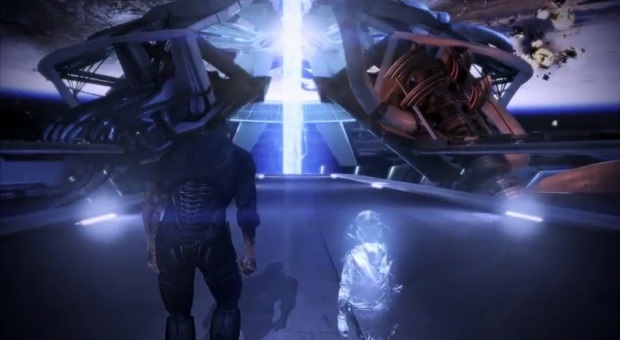
The Synthesis variation, notoriously dubbed the Disney ending, has been clarified in that Shepard's energy is essentially used as the catalyst to advance both organics and synthetics into the final evolutionary lifeform with new DNA (like some kind of Digimon). The Child reveals that this will give organics the enhancements they desire through robotics and synthetics the understanding of organics they desire, while giving every being some green veins so that they look like a character in Too Human. The motion comic suggests that this would begin a period of harmony and peace, with the Reapers choosing to impart the knowledge of all the races that came before the current cycle.
Despite being called the best ending by the Child, the trouble that some have with it is the idea of forcing everyone to evolve without their consent and accepting the concept of paradise itself. The ending supposes a utopia with hearts and rainbows, where Wrex would likely turn the corner with Shepard's birthday cake of love and joyness. It also unfortunately makes the Stargazer's comment that "information has been lost with time" rather dubious, given the kind of technological advancement this utopia will apparently have.
Shooting the Child either out of sadistic curiosity or in defiance of his genocidal logic initiates the new Refusal ending. The Child simply mutters a few words, turns around, and leaves Shepard standing alone, having to live with the consequences. Surprisingly, it immediately cuts to the next cycle with Liara detailing the Reaper crisis in a beacon underground. The Stargazer, who is a woman this time, says that because of the beacon, their cycle has been saved. It's a short and bittersweet conclusion that will likely be seen as the worst, most under-produced ending of the four, but given the time BioWare had, it's an acceptable variation. And in a way, a hard reset might just be the best ending for the future in case the Child had some ulterior motive.
The most important aspect of the Extended Cut DLC is that BioWare didn't have to make it, nor did they have to make it for free. They could have crossed their arms and refused to change anything, but they instead acknowledged some of their fans' complaints and ultimately made the ending better. The deus ex machina, Space Magic Child may still not sit well with you, and the ending still incorporates only a paltry number of your decisions throughout all three Mass Effect titles and largely dismisses the extent of Shepard's paragon/renegade bar. So for some fans, it won't change your mind. But within the confines of the existing ending, this enhanced version has a more satisfying resolution, adds clarity, and literally finishes with a stronger thank you letter to all of Bioware's fans.
I, for one, accept it.
-
It's free!
-
Provides more clarity
-
Stronger emotional resolution
-
Adds new cut-scenes and motion comic
-
New Refusal ending, though quite brief
-
Only a few complaints left unresolved
